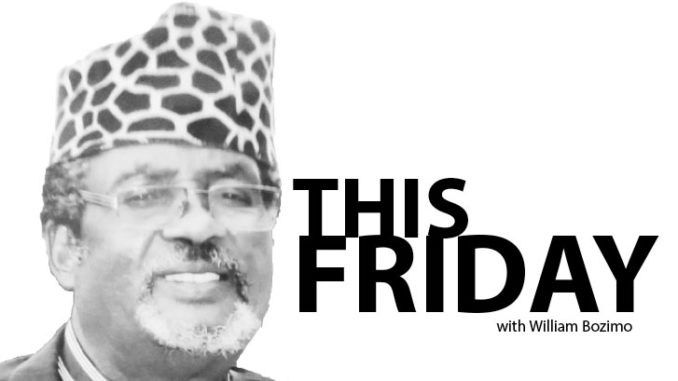
The battle for minimum wage is an ongoing dilemma for Nigerian leaders over time. For the past twenty years or so, Nigerian workers and non-workers had been groaning in silence over paltry salary of eighteen thousand naira for the lowest paid worker in the country.
I recall sometime in the past the minimum wage could hardly take any worker home from his place of work, let alone cater for the siblings and long line of relations waiting in the wings for that salary. It is sad that ours is an African country where social services and welfare packages are never included in the system of governance as it operates in the UK where even jobless Britons are paid some money for their daily survival.
In the Nigerian setting, with the long line of family burdens and very distant cousinly ties, salaries end up like smoke from the moment it is paid into one’s salary account in the bank. In situations where school fees in primary and secondary schools are treated like big businesses salaries designated by the White colonial masters are personal emoluments which have become an all-purpose expenditure-school fees, house rents and money for the endless stream of family relations.
Different layers of suggestions are in the air, some are saying 55 thousand would do for a minimum wage, while others are saying 70 thousand could assist the Nigerian worker to make ends meet every month end. The philosophy behind a minimum wage presupposes that only those who are working in governments establishments ought to qualify for a minimum wage. The houseboy and girl employed by a private individual would also fight for their share of the minimum wage below which no Nigerian should be employed. There appears to be no upper ceiling in this basic argument about minimum wage.
Most state governors are saying that any unilateral fixing of minimum wage would not be binding on them. It must be pro rata depending on the states’ ability to pay and the amount of revenue accruing from the Federation Account down to the states. The fluidity of the minimum wage argument does not put a peg on the qualifications of all employees.
For a primary six school certificate holder the amount of salary to be paid in any private organisation will be dependent on proper bargaining between the employer and the employee.
If a president or governor who parades a school certificate is qualified to contest an election into governorship or presidential positions, and such executive positions have the state treasuries at their beck and call and they could dispense all monies into different areas of their choice, minimum wages are at the mercy of the leader at any given time, but the current deadline given by NLC cum TUC to government to pay an approved minimum wage is also part of the demands of workers.
On the flipside of the workers’ demands is the inherent blackmail by labour leaders who use such occasions to feather their own pockets from the government in power. This has become natural in the Nigerian factor which many had coined to mean ‘YOU CHOP WHERE YOU WORK’.
According to the Holy Book, the Labourer is worthy of his hire. A just pay for a just labour is allowed in human affairs. The Nigerian situation is such that while the Oil and Gas producing states in the Niger Delta are the ones sustaining the economy of the country, the amount given to them is determined by the Federal in Abuja.
If resources lodged in the wombs of the soil of those states were to be exploited by the states, they would be able to determine how they could pay in terms of taxes to the Central government. The Nigerian situation is not a perfect Federal system but is unitary in its operations.
Calling for mass strike in the middle of salaries not yet paid is a suicidal activity by the NLC and TUC. Striking for better or enhanced salaries is good, but where the leaders are not sincere and transparent it could eventually backfire on the workers who are at the mercy of the powers that be.
These days when politicians are busy designing smarter ways to return to power by hook or crook, the welfare of workers does appear to have taken a back seat. For my prescription for a minimum wage to be meaningful in Nigeria we must reduce the fat salaries of Legislators who earn humongous amounts of money as their monthly salaries.
No amount of minimum salary could take any Nigerian worker home because of the stream of dependents on the queue waiting eagerly for their brothers’ salaries.
What Nigerian workers actually need is a living wage that could take care of their whole families. After all, in Africa, we are our brothers keepers. What Nigerian workers are going through these days is minimum wage with maximum slavery. Take it or leave it.
END

Be the first to comment